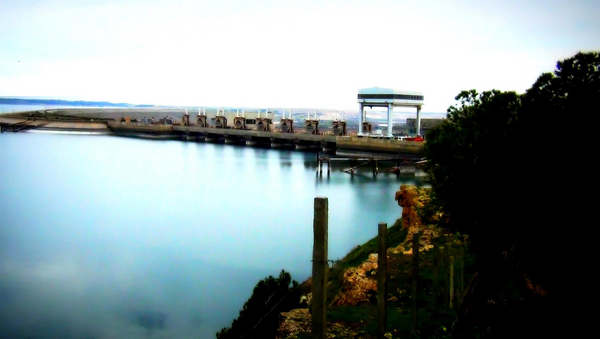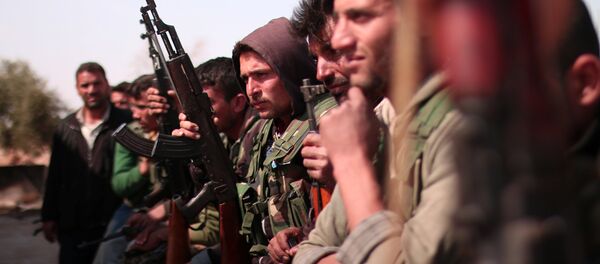DAMASCUS (Sputnik) — Tabqa Dam, which functions primarily as a hydropower plant, suspended service after its control center was damaged by what could have been an airstrike or shelling, a source told Lebanese broadcaster Al Mayadeen, adding that technical experts could not reach the site due to continuing fighting in the area.
2. Now only fighting on the ground, no airstrikes. Liberation of dam is slow because we want to avoid damaging it. #Raqqa #Syria
— Lizzie Phelan (@LizziePhelan) 26 марта 2017 г.
Earlier this week, US and Syrian opposition forces were air-dropped to Syria's Raqqa province to conduct a joint operation to liberate several villages in the vicinity of Syria's northern Al Tabqah town from Daesh.
The SDF forces, deployed up to four kilometers (approximately 2.5 miles) away from the dam, plan to seize the city of Tabqa, which is the last big Daesh stronghold on the way to Raqqa, de facto Daesh capital in Syria.
The Tabqa Dam was built in 1970s with the help of Soviet experts to create Lake Assad, Syria’s biggest reservoir, and to generate hydroelectric power.
On Thursday, Syrian Democratic Forces spokesman Talal Selo said that the SDF units would need no more than 15 days to block Raqqa and start the liberation of the city. On Friday, Kurdish People's Defense Units (YPG) said they were close to liberating the dam.
The US-backed Syrian Democratic Forces (SDF), which include Arab and Kurdish forces such as YPG, launched the Wrath of Euphrates operation to retake Raqqa on November 5, 2016.



